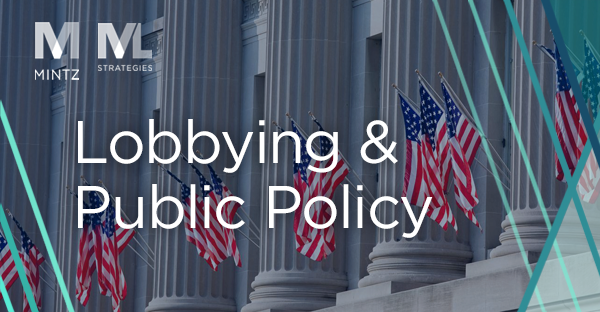
COVID-19 Viewpoints
Filter by:
Commercial Eviction Restrictions Take Shape Nationwide
March 23, 2020 | Blog | By Kelly Frey
In response to the growing COVID-19 crisis, an increasing number of state and local governments will be issuing Executive Orders that mandate the closure of private businesses and require citizens to “stay home” or “shelter in place.” Several jurisdictions, including San Francisco, Los Angeles, and New York, are trying to mitigate the downstream economic impact of such Orders by limiting or banning commercial evictions during the pendency of the COVID-19 epidemic.
Read more
Mobilizing Against COVID-19: Emergency Responder and Military Leave
March 22, 2020 | Blog | By Michael Arnold
As the United States continues to develop its response to the COVID-19 pandemic, thousands of members of the National Guard will be activated to help deal with the threat. Last week, Massachusetts Governor Charlie Baker activated 2,000 of the state’s National Guardspeople to aid the COVID-19 fight. As states assess how to use the National Guard to assist with the current state of emergency, service members will be called on to serve in increasing numbers.
Read more
OFCCP Announces Relief From AAP Requirements For COVID-19 Related Federal Contracts
March 22, 2020 | Blog
The Office of Federal Contract Compliance Programs (OFCCP) announced that for the three month period from March 17, 2020 to June 17, 2020, it will provide a temporary exemption to certain federal contracting requirements. The exemption is related to work under federal construction and service/supply contracts to provide COVID-19 relief.
Read more
FDA Issues Guidance Addressing COVID-19 Interference with Clinical Trials
March 21, 2020 | Blog | By Dianne Bourque, Benjamin Zegarelli
In recognition of the widespread disruptions the COVID-19 crisis is posing to planned and ongoing clinical trials at sites throughout the United States (and global clinical sites), the Food and Drug Administration (FDA) issued on Wednesday, March 18 a guidance describing potential considerations for adjusting trial processes and, potentially, protocols and statistical analysis plans to mitigate any difficulties meeting trial objectives due to interference from the virus and related social and governmental restrictions. The document, titled FDA Guidance on Conduct of Clinical Trials of Medical Products during COVID-19 Pandemic, describes various potential complications, such as subjects being unable to travel to the trial site, loss of access to investigational product, or the need to screen subjects for COVID-19, as well as general recommendations for addressing them.
Read more
Governor Newsom Implements “Shelter in Place” Order in California – What this Means for Your Business
March 21, 2020 | Blog | By Paul Huston
Late Thursday evening California Governor Gavin Newsom issued Executive Order N-33-20 (the “Order”), which directs all California residents to stay home in light of the developing COVID-19 public health crisis. The Order states that except as necessary to continue the operations of businesses in the 16 “Critical Infrastructure” industries, all residents should leave their residence only as necessary for food or medical needs.
Read more
COVID-19 Immigration-Related Updates
March 20, 2020 | Blog | By Immigration News Team
We provide the following information to assist our clients to keep track of some of the most salient Coronavirus-related immigration changes and developments:
Read more
Effects of Social Distancing and COVID-19 on Government Investigations & Proceedings Still Developing
March 20, 2020 | Blog | By Samantha Kingsbury
In the midst of the upheaval caused by social distancing and related efforts to minimize and contain COVID-19-related risks, we have been monitoring steps taken by the Department of Justice (DOJ), the U.S. Attorneys’ Offices (USAOs), and federal courts to adapt to these circumstances. Any steps taken are sure to affect ongoing government investigations and related proceedings and how we, as defense counsel, approach them.
Read more
In the COVID-19 Economy, Employers Should Be Prepared for Increased 401(k) Hardship Distributions
March 20, 2020 | Blog | By Patricia Moran
401(k) plans must, by law, limit the circumstances under which plan money can be withdrawn by active employees. However, 401(k) plans can (and most do) allow in-service withdrawals in the event of an employee’s financial hardship. The COVID-19 pandemic is guaranteed to have financial repercussions for many 401(k) participants, and hardship distributions may provide a financial bridge to better times. The post summarizes the hardship distribution rules to help 401(k) plan sponsors prepare for an uptick in requests. It should be noted that the hardship distribution rules changed in 2018 and 2019, so employers are advised to confirm that they are familiar with the most current rules.
Read more
OCR Exercises HIPAA Enforcement Discretion for Telehealth Services During the Coronavirus Emergency
March 19, 2020 | Blog
The Department of Health and Human Services (HHS) has taken many actions to loosen or waive requirements on the provision of health care during the current coronavirus pandemic, as we discussed yesterday and Tuesday. In addition to HHS’s waiver of certain HIPAA requirements, HHS’s Office for Civil Rights (OCR) recently announced that it will not be imposing penalties for providers who use communication devices or other technologies that do not meet HIPAA’s requirements in order to treat patients via telehealth.
Read more
Congress and the White House Continue Efforts to Respond to Coronavirus
March 19, 2020 | Blog | By Anthony DeMaio
The response to the coronavirus situation is fluid and fast-moving – particularly by Congress’ standards. In response to the coronavirus pandemic, three phases of legislation have been considered in Congress: Coronavirus Supplemental Appropriations Act (signed into law March 6th); Families First Coronavirus Response Act (signed into law March 18th); and a large ($1 trillion+) economic recovery package (currently being drafted). This post provides details about these legislative efforts and other recent actions by the White House to address the coronavirus pandemic.
Read more
The CFTC and NFA Offer No-Action Relief to Market Participants Facing Unprecedented Conditions Posed by the COVID-19 Pandemic
March 19, 2020 | Advisory | By Therese Doherty, Jason Burrell
This alert outlines the conditions set forth in the DSIO and DMO’s no-action letters providing temporary relief to market participants facing COVID-19–related challenges.
Read more
New York State Implements Strict In-Person Workforce Reduction Measures in Response to COVID-19, Effective Friday, March 20th
March 19, 2020 | Blog | By Michael Arnold, Corbin Carter
New York Governor Andrew Cuomo has issued an expansive executive order, which mandates that, beginning Friday, March 20, 2020, at 8:00 PM, all “non-essential” businesses and non-profits entities in New York State must reduce their in-office workforce by at least 75%, and where possible, utilize telecommuting arrangements.
Read more
Financial Relief for the Small Business Community in Massachusetts
March 19, 2020 | Blog | By Steven Baddour, Daniel Connelly, Caitlin Beresin, Kaitlyn Sprague, Taylor Shepherd
The Baker Administration, along with prioritizing the medial professionals on the front lines of the fight against the novel coronavirus (“COVID-19”), have taken significant steps to relieve pressures on small businesses negatively impacted by the virus. Most notably, opportunities through the Small Business Administration’s (“SBA”) Economic Injury Disaster Loan program and other tax relief for small businesses including those in the restaurant and hospitality sectors.
Read more
COVID-19 Update: The Families First Coronavirus Response Act Becomes Law
March 19, 2020 | Blog | By Michael Arnold, David Barmak, Danielle Bereznay
President Trump signed the Families First Coronavirus Response Act into law late Wednesday night. We summarize the enacted version below (which replaces our analysis of an earlier version the House passed, which it since amended). The law goes into effect into effect April 2, 2020 and will remain in place until the end of the year.
Read more
Governor Newsom Suspends WARN Requirements for California Employers
March 19, 2020 | Blog | By Paul Huston
As part of the continuing effort to respond to the COVID-19 pandemic, Governor Newsom has issued an Executive Order temporarily modifying the California WARN Act requirements for employers engaging in mass layoffs.
Read more
HIPAA Compliance in a National Emergency: What Does It Look Like in Real Life?
March 18, 2020 | Blog | By Dianne Bourque
Amidst the novel coronavirus (COVID-19) outbreak, the Secretary of the U.S. Department of Health and Human Services (HHS), Alex M. Azar, took steps on March 15, 2020, to waive sanctions and penalties related to certain provisions of the HIPAA Privacy Rule (the “Waiver”). However, the HIPAA Privacy Rule is not suspended, and the Waiver only applies: (1) in the emergency area identified in the public health emergency declaration; (2) to hospitals that have instituted a disaster protocol; and (3) for up to 72 hours from the time the hospital implements its disaster protocol. To demonstrate how the Privacy Rule and Waiver provisions work in real life, let’s look at an example: A patient at a hospital reports contact with a confirmed COVID-19 diagnosis. How can this information be shared?
Read more
FINRA Warns Member Firms of COVID-19 Related Cybersecurity Risks
March 18, 2020 | Blog | By Cynthia Larose
The Financial Industry Regulatory Authority (FINRA), the independent nongovernmental organization that writes and enforces the rules governing U.S. registered brokers and broker-dealers, has issued guidance to its member firms regarding pandemic-related planning.
Read more
FDA’s Ongoing Response to the COVID-19 (Coronavirus) Outbreak
March 18, 2020 | Blog | By Joanne Hawana, Benjamin Zegarelli
As we write this update on the actions of the Food and Drug Administration (FDA), more state and local governments (along with private businesses and employers) are taking sweeping actions to protect the public from the continued spread of COVID-19. The federal response to what is now a pandemic of COVID-19 started off slowly, but we are now seeing frequent and promising announcements from FDA and other agencies within the Department of Health and Human Services.
We published our first installment highlighting FDA’s role in this public health emergency on March 4, 2020 (see our prior post here). In the two weeks that have elapsed since then, FDA has taken several actions related to COVID-19 testing and other important public health protections which are explained below. One of the most striking things about the list of actions included in this post may be how diverse and broad FDA’s authorities are and what a substantial role the agency plays in protecting Americans from a variety of different types of harm.
Read more
We published our first installment highlighting FDA’s role in this public health emergency on March 4, 2020 (see our prior post here). In the two weeks that have elapsed since then, FDA has taken several actions related to COVID-19 testing and other important public health protections which are explained below. One of the most striking things about the list of actions included in this post may be how diverse and broad FDA’s authorities are and what a substantial role the agency plays in protecting Americans from a variety of different types of harm.
In Massachusetts, Health Insurance Carriers are Responding to COVID-19 – And Employers Can Help Spread the Word
March 18, 2020 | Blog | By Patricia Moran
In response to COVID-19, Massachusetts has directed health insurance carriers to, among other things, relax cost-sharing and enhance telemedicine services. These directives are part of the Commonwealth’s package of efforts to encourage early detection and treatment of COVID-19, and to slow the transmission of COVID-19. Massachusetts carriers have answered the call by enhancing benefits and services, in some cases beyond what the new directives require. Employers can play a key role by informing employees of these new benefits and encouraging employees to use the benefits.
Read more
Congress Calls on FTC to Protect Americans from Price Gouging During COVID-19 Health Crisis
March 18, 2020 | Blog | By Christian Tamotsu Fjeld
On Wednesday, key Members of the House of Representatives sent a letter to the Chairman of the Federal Trade Commission (FTC), urging the Commission “to take immediate action to protect consumers from price gouging during this [COVID-19] declared public emergency.” The letter was sent to FTC Chairman Joseph Simons from the chairs of the committees and subcommittees with jurisdiction over the FTC:
Read more







